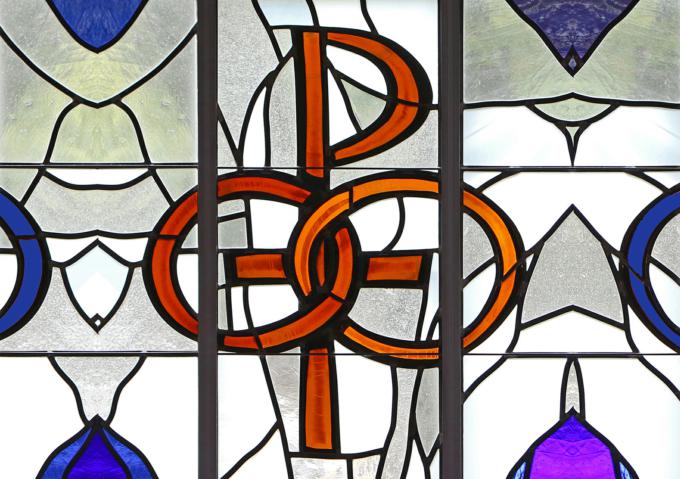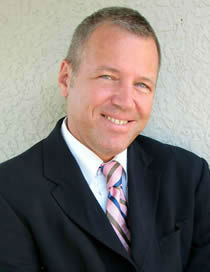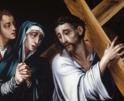
Spirituality
... why in the world wouldn't one cling devotedly to every vestige of this teacher and spiritual father?

Pakaluk
I do not understand how the destruction of something serves to improve it. Or how an intention which leads to the establishment of an institution, can survive the destruction of that institution. Or even why one would destroy the artefact of a great saint.
There are many things which seemed difficult to understand when the "Pontifical John Paul II Theological Institute for Matrimonial and Family Science" was instituted two years ago, through a Motu Proprio of Pope Francis, entitled "Summa Familae Cura." (A "motu proprio" is a legal document which effects a particular decision of the pope.)
First, a little background. In 1982, following a synod on the family convened by Pope John Paul II, and the publication of his Apostolic Exhortation, "Familiaris consortio" -- an extensive charter of the Christian family in the modern world -- the pope instituted what was called the Pontifical Institute for Studies on Marriage and the Family. Its stated purpose was "that the truth of marriage and the family may be given ever closer attention and study, and so that lay people, religious and priests can receive scholarly formation in the study of marriage and the family both in a philosophical-theological way and from the point of view of the human sciences" (Magnum matrimonii sacramentum, 3). This institute was eventually named The Pontifical John Paul II Institute for Studies on Marriage and the Family.
The purpose of this institute looks as valid today and as needful as ever. The circumstances which called it forth have not changed but have become more pressing. Furthermore, the institute would seem to be the gift of a great and sainted pope to the Church. To remain "in touch" with the institute seems a way of remaining "in touch" with that pope -- as indeed many who have profited from its work have thought.
However, almost exactly two years ago, Pope Francis abolished this institution, in the aforementioned motu proprio, and replaced it with a new institution, which had a nearly identical name (see above). The relevant language in the motu proprio pulls no punches:
"With the present Motu Proprio, I institute the Pontifical John Paul II Theological Institute for Matrimonial and Family Science which ... succeeds and substitutes for (in locum subvenit) the Pontifical John Paul II Institute for Studies on Marriage and Family ... which thus comes to an end (exstinguitur). It will therefore be essential that the original inspiration (primigenia inspiratio) that gave life to the former (literally, "now extinguished," exstinctum) Institute for Studies on Marriage and Family continue to bear fruit in the broader field of activity of the new Theological Institute, effectively contributing to making it correspond fully to the current demands of the pastoral mission of the Church."
One must dwell on this paragraph, because commentators have not written correctly about recent news involving the institute. The recent news is that a leading, tenured professor in fundamental moral theology was fired, Msgr. Livo Melina, renowned for his learning, insight, orthodoxy, and piety. Also, another tenured moral philosopher and professor was fired, Father Jose Noriega.
Commentators describe this as changes in the long-standing faculty and culture of the institute. But legally what has happened is that every professor who had an appointment in the "extinguished" institute lost that appointment when the new institute replaced it; and someone has since decided that Professors Melina and Noriega (so far) would not be appointed to the new institute. It's not even correct to say they were "fired" or "let go." They were simply not appointed.
As a professor and academic professional, I find this a neat trick. Best practices in academia dictate that a tenured professor can be "separated" only if a genuine financial exigency makes it necessary for the institution to eliminate the entity (school, department) in which he is appointed, or if there is serious cause (e.g. scandalous immorality, dereliction, or heterodoxy in some religious institutions), and only after due process. Imagine if a university, to side-step these practices, could simply assert that the former university has been extinguished, and that, going forward, certain troublesome professors would not be appointed in the replacement institution!
The ostensible reason for the new institution, according to many sources, was to broaden the studies of the original institute, to include social science. But social science was already included in that institute's mandate (see above, "and from the point of view of the human sciences"). Moreover, obviously, one does not broaden, or improve something, by first destroying it.
That was my first puzzlement raised at the start. The second was whether an "original inspiration" isn't embodied in an institution and its culture, and therefore it cannot float free, once that institution is extinguished, and enter into an entirely distinct institution. My third, sadly, was a cry of the heart -- from someone who still vividly remembers watching on TV the funeral Mass of John Paul II (remember the Bible on the simple coffin, its leaves turning over in the wind?) -- why in the world wouldn't one cling devotedly to every vestige of this teacher and spiritual father?
True development requires a perduring subject of change, as Aristotle pointed out, and as Newman observes again in his great treatise on "Development of Doctrine." I worry that part of the crisis of the Church derives from confusing development with annihilation-and-replacement, and that the fate of the JP II Institute might signify something beyond itself.
- Michael Pakaluk is Professor of Ethics and Social Philosophy in the Busch School of Business at The Catholic University of America. His book on the gospel of Mark, ‘‘The Memoirs of St. Peter,’’ is available from Regnery Gateway.
Recent articles in the Spirituality section
-
He saw the cloths and believedBishop Robert Barron
-
God's instrument for viewing the crucifixionMichael Pakaluk
-
QuinquagesimaMichael Pakaluk
-
Pro-life Christians: Now is the time to shout from the rooftopsBishop Robert Barron
-
Seeking an indulgence as an act of faithMichael Pakaluk


















